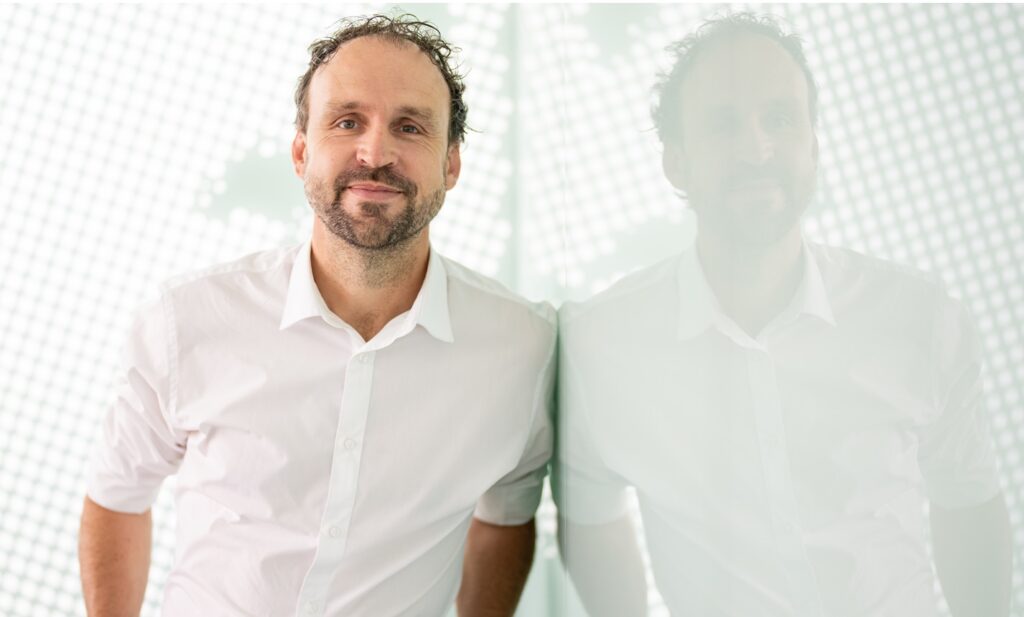The EWUU alliance has taken the next step in development with the appointment of Jaap Trappenburg as its new alliance coordinator in August 2024. With a solid background in healthcare innovation and interdisciplinary working, Trappenburg has spent the past few months further setting EWUU’s course and working on shaping strategic plans for the coming years.

The EWUU alliance, a collaboration between the universities of Eindhoven, Wageningen, Utrecht and Utrecht University Medical Centre, was founded with the mission to work together on complex societal challenges. These so-called ‘wicked problems’ require an approach that transcends disciplines. The focus is on themes where the expertise of the four partner institutions complement each other optimally and where a joint effort exceeds individual contributions.
According to Trappenburg, the alliance is now firmly organised. ‘We have a solid foundation with strategic building blocks and a unique signature. The two focus areas, the EWUU institute 4 a Circular Society and the institute 4 Preventive Health, are not only ambitious but also highly relevant. ‘ They address the major societal issues of our time,’ he says. ‘By joining forces between the institutions and focusing on shared goals, EWUU has created a framework in which innovation and collaboration can flourish.’
Success
Over the past year, important steps have been made in the EWUU alliance. A good example of the alliance’s impact is the collaboration with societal stakeholders to better align research questions with practical needs. The EWUU Centre for Unusual Collaborations provides challenging methodologies and support to promote interdisciplinary collaboration, which is of great value in addressing complex issues. It also worked on harmonising internal processes and strengthening connections with external stakeholders.
‘What really inspires me is the synergy created between our strategic programmes,’ says Trappenburg. ‘For example, the interplay between AI research and Preventive Health projects has led not only to new grant applications, but also to tangible results that increase our societal relevance.’
Ambitions for the next two years
The next two years are all about further growth and strengthening. Trappenburg explains the importance of not only expanding the EWUU community, but also making it more vibrant and positioning it more strongly in the outside world. ‘We want to showcase our unique integrative strength. That means not only keeping our knowledge within our academic walls, but also making it accessible to social and industrial partners. Think startups, governments and international collaborations,’ he says.
A key focus is the further development of the curriculum within the alliance. EWUU is committed to transdisciplinary learning among other things by having students work on ‘real-world problems’ in multidisciplinary teams. ‘This is not only a challenge for the students, but also an opportunity to form the scientists and innovators of the future. Agility, collaborating across disciplinary boundaries and thinking from different perspectives are crucial skills we want to develop’ Trappenburg stresses.
Strategic positioning
To fulfil its mission, the alliance must continue to position itself strategically. ‘Our focus is on strengthening external collaborations and maximising the impact of our research. That means we focus not only on science, but also on tangible impact’ explains Trappenburg. ‘It is time to further show what the EWUU alliance can really do for society.’
In addition, Trappenburg wants to work on a strong brand strategy. ‘Our unique approach deserves a face, both internally and externally. Clear branding will help us enter into new partnerships and strengthen our position in the Netherlands and abroad.’
Looking to the future
With an energetic approach, Trappenburg is working to further develop this strategic alliance. He is optimistic about the future and stresses that the strength of the EWUU alliance lies in its ability to form a bigger picture than the sum of its parts.
‘We face the challenge of delivering unique and tangible results,’ he concludes. ‘The next few years will be crucial to increase our impact, not only within academia, but especially beyond. Together, we can make a difference.’ With this drive and focus, he confidently looks ahead to 2025 and beyond: the EWUU alliance is ready to deliver innovative solutions to the challenges of the future.’